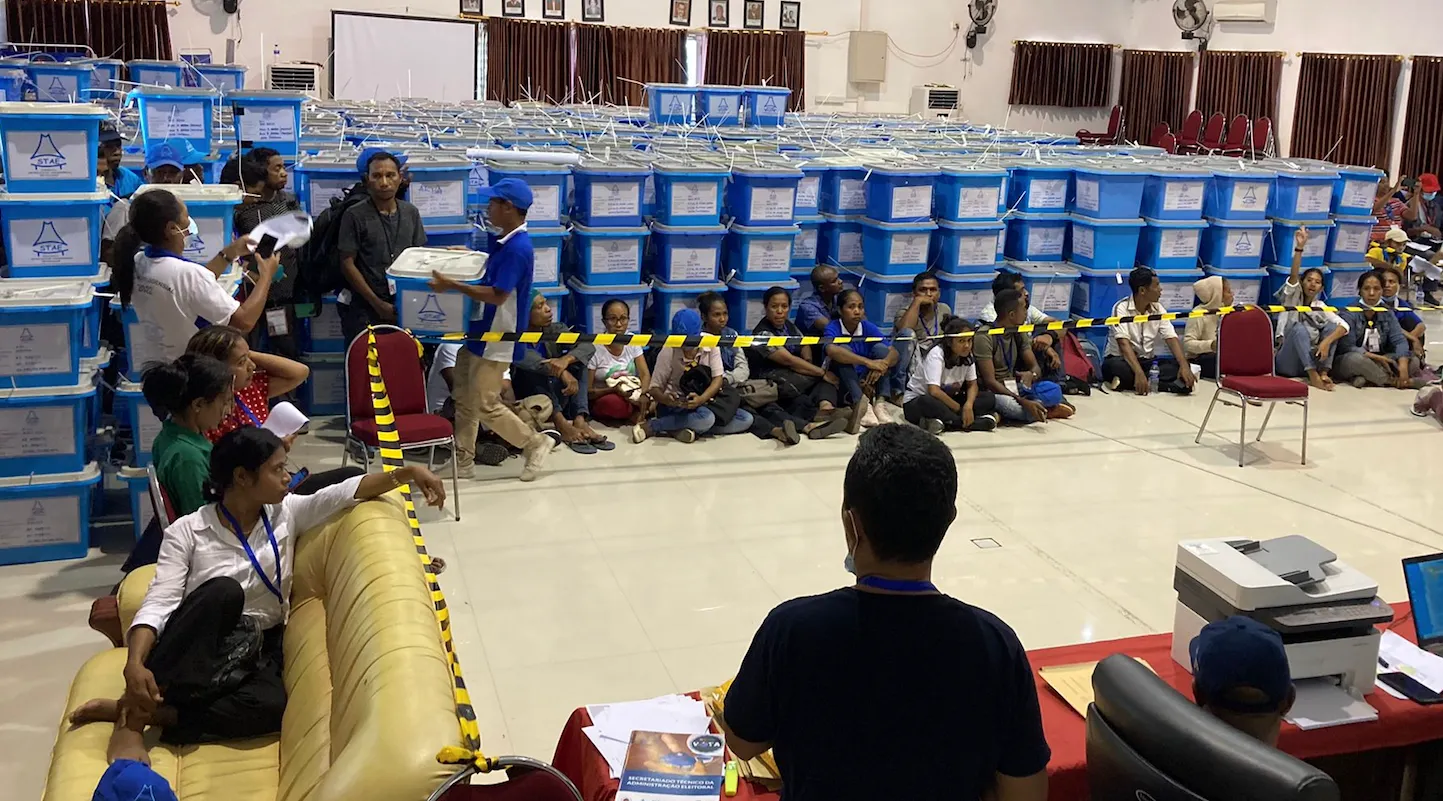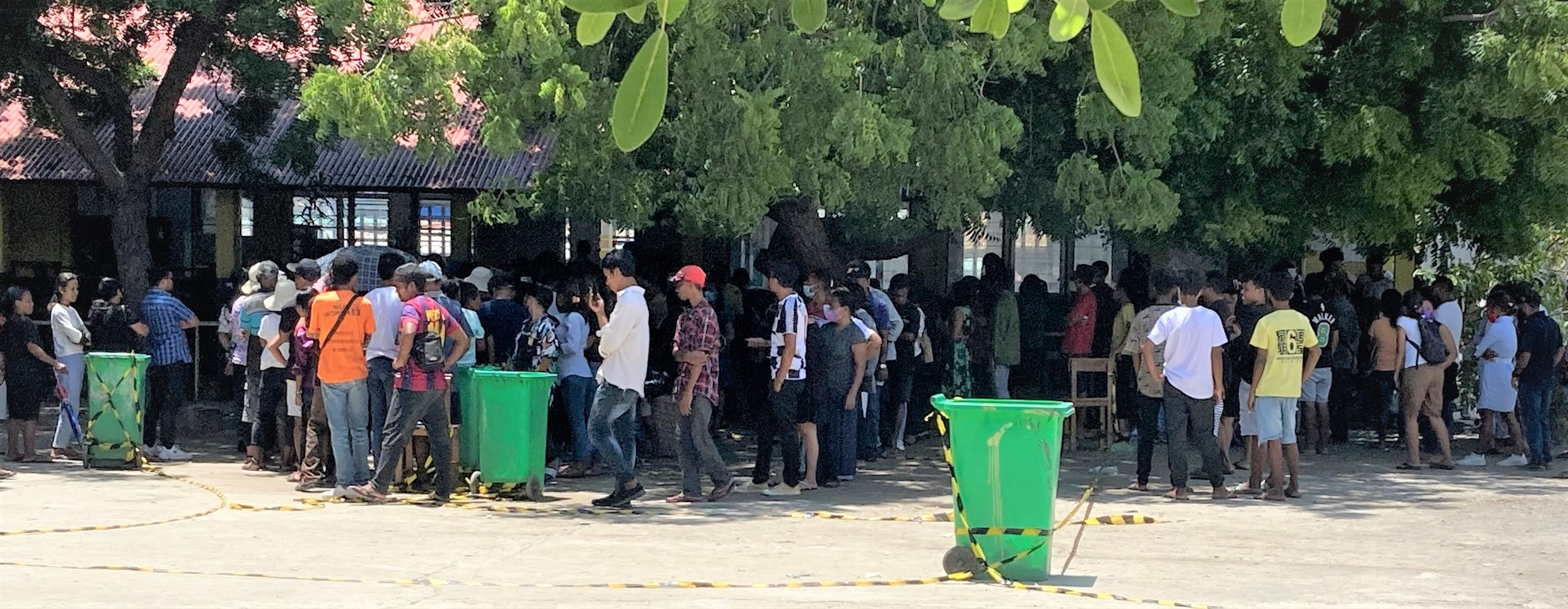Timor-Leste votes confidently amidst the pandemic

Voters in Timor-Leste went to the polls on 19 March 2022 to choose a President for a five-year term commencing on 20 May. This was the fifth presidential election since Indonesian rule had come to an end following a historic vote for independence on 30 August 1999. Contested by 16 candidates, four of whom were women, it marked a further consolidation of the country’s reputation as one of the strongest electoral democracies in South East Asia.
In the decades since the independence vote, the scale of electoral operations in Timor-Leste has increased considerably. The number of registered voters has grown by over 90 per cent. At the independence vote there were only 213 polling centres; for the 2022 election, 1200 were established. The electorate is notably young: almost 50 per cent of the registered voters are under 35 years of age.
The timing of presidential elections is dictated by history going back to 2001, one effect of which is that polling is held during the rainy season. This poses significant challenges for the Technical Secretariat for Electoral Administration (STAE) and the constitutionally-mandated National Elections Commission (CNE), as roads can become impassable. On the day before the election, when sensitive materials including ballot papers were being distributed to polling centres across the country, community efforts were sometimes needed to get vehicles across rivers, to extract them from mud, or to deploy porters to carry ballot boxes on their backs. This exemplified one of the great strengths of Timorese elections: they are widely seen as an undertaking of the entire society, the success of which depends on all stakeholders—not just the electoral authorities—playing a constructive role.
This spirit was also on display on election day, reflecting a pattern which is now well-established. Conflict at polling centres is very rare in Timor-Leste; even when voters have to queue in the hot sun, complaints are seldom heard. Voters show every sign of valuing and respecting the democratic process, and appreciating the way in which they are empowered to make choices which will affect their futures.
As anticipated, the polls took place during the Covid-19 pandemic. Fortunately, the case numbers in Timor-Leste have dwindled over the recent weeks, thus allowing for greater confidence among voters and officials alike that the elections are conducted safely. However, health safety measures, such as mask-wearing and hand-sanitizing, have been put in place by the authorities and have been taken seriously by many voters.
The polling process is straightforward. Registered voters are issued with a photographic card at the point of registration, which they produce at the polling centre to establish their right to vote. Their names are highlighted on the voter list, and they are issued with a ballot paper which they mark in secret, typically by using a nail to punch a hole adjacent to the candidate of their choice. After the ballot has been placed in a sealed ballot box, one of the voter’s fingers is marked with indelible ink to prevent multiple voting. The whole process takes only a few minutes.

Votes are counted at each Polling Centre immediately after the close of the poll at 15:00. The process is comparatively slow, since it involves every ballot paper being displayed to all present—similar to its regional neighbours, Indonesia and Thailand—so that they can see the vote that has been marked on it. This, however, also makes the counting exceptionally transparent; and indeed, transparency is one of the defining features of all polling day operations.
When the counting is concluded, the results from each Polling Centre are tabulated, first at the municipal and then at the national levels. This takes several days, as the documents and materials from Polling Centres are physically transferred to the municipal tabulation centres.
The polling and counting processes were implemented by some 16,000 staff nationwide, 50 per cent of whom were required to be women, and many of whom were notably young, but displaying an inspiring commitment to their country’s democratic future.
International IDEA, working in cooperation with STAE, CNE and the UN Development Programme with the financial support of Japan, assisted with the development and implementation of training for polling staff, and the provision of advice on measures which could be considered for mitigating the risk of Covid-19 infection at election time.




